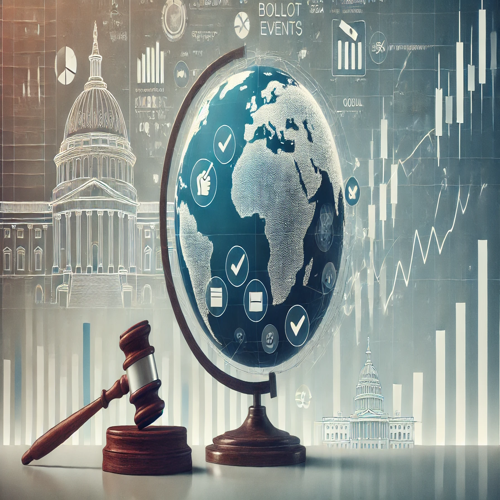
Political Events Affect in Forex Market
Political Events Affect in Forex Market. Political Effects. Do Political Events Affect in Forex Market? Forex Education and Training.
Political Events Affect in Forex Market. Political Effects. Do Political Events Affect in Forex Market? Forex Education and Training. Forex Tips. Learn Fx Trading.
1. Government Intrigues and Decisions
Economic decisions taken by governments have a direct impact on exchange rates in the Forex market. For example, when a country’s central bank increases interest rates, this can often lead to an increase in the value of that country’s currency. Higher interest rates provide higher returns for foreign investors, which increases demand for that country’s currency. On the other hand, if a country’s government adopts an expansionary fiscal policy, such as large-scale spending or tax cuts, this can increase the risk of inflation and lead to a fall in the value of the currency. Moreover, governments‘ fiscal stimulus packages and public spending can have various effects on exchange rates and shape investors’ economic expectations.
2. Election Results
A country’s election results can affect exchange rates in the Forex market because election results directly affect economic and political stability in the country. Uncertainty of election results or radical changes can increase volatility in the markets. For example, a change in the leader of a country or radical reforms carried out by a new political power can shake investors’ confidence and lead to fluctuations in exchange rates. Moreover, uncertainties and speculation during election periods may cause high volatility in markets and affect exchange rates.
3. Geopolitical Situations
Wars, terrorist attacks, border conflicts, trade disputes and other geopolitical risks can create uncertainty in the Forex market. Such events can increase investors’ risk aversion and cause sudden changes in exchange rates. For example, an outbreak of war or an act of terrorism in a region may cause investors to avoid risky assets and turn to currencies that are considered safe havens. Currencies such as the US dollar and the Swiss franc often appreciate in such situations because investors see them as a hedge against economic and political uncertainty.
4. Trade Intrigues and Agreements
International trade policies and agreements can have a significant impact on exchange rates in the Forex market. Events such as the conclusion of major trade agreements or the outbreak of trade wars can affect the balance of trade between countries and thus lead to changes in exchange rates. For example, tariffs or trade restrictions imposed by one country on another can affect the balance of imports and exports, which can change the value of the currencies of the countries involved. Changes in trade agreements can cause significant fluctuations in exchange rates.
5. Economic Sanctions
Inter-country economic sanctions and embargoes can affect the economies of target countries and thus their exchange rates. Economic sanctions may restrict foreign trade and capital flows of target countries, which may adversely affect the value of their currencies. For example, economic sanctions against a country may lead to a liquidity shortage in the foreign exchange market of that country and reduce the value of its currency. Moreover, the economic effects of sanctions may undermine market confidence and cause uncertainty in exchange rates.
6. Government Intervention and Economic Policies
Direct interventions by governments and central banks can have an impact on the Forex market. For example, central banks may intervene in the foreign exchange markets, buying and selling currencies in order to maintain or support the value of their currencies. Such interventions may seek to stabilise the value of currencies or steer it towards a specific target. In addition, central banks’ monetary policies can affect liquidity and volatility in the foreign exchange market. These interventions can play an important role, especially during major economic crises and market turmoil.
7. Political Stability and Confidence
A country’s political stability directly affects investors’ confidence in its currency. Political instability can lead to economic uncertainties and risks, which can cause high volatility in exchange rates. Investors have more confidence in the currencies of countries with high political stability. Political risks can cause investors to worry about the country’s economic management and future policies, which can affect the value of currencies. Political stability can be a determining factor on long-term investment decisions and exchange rates.



